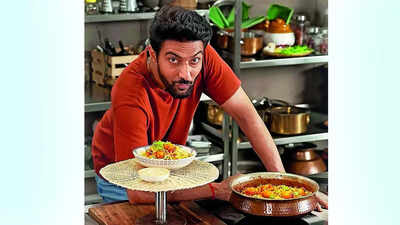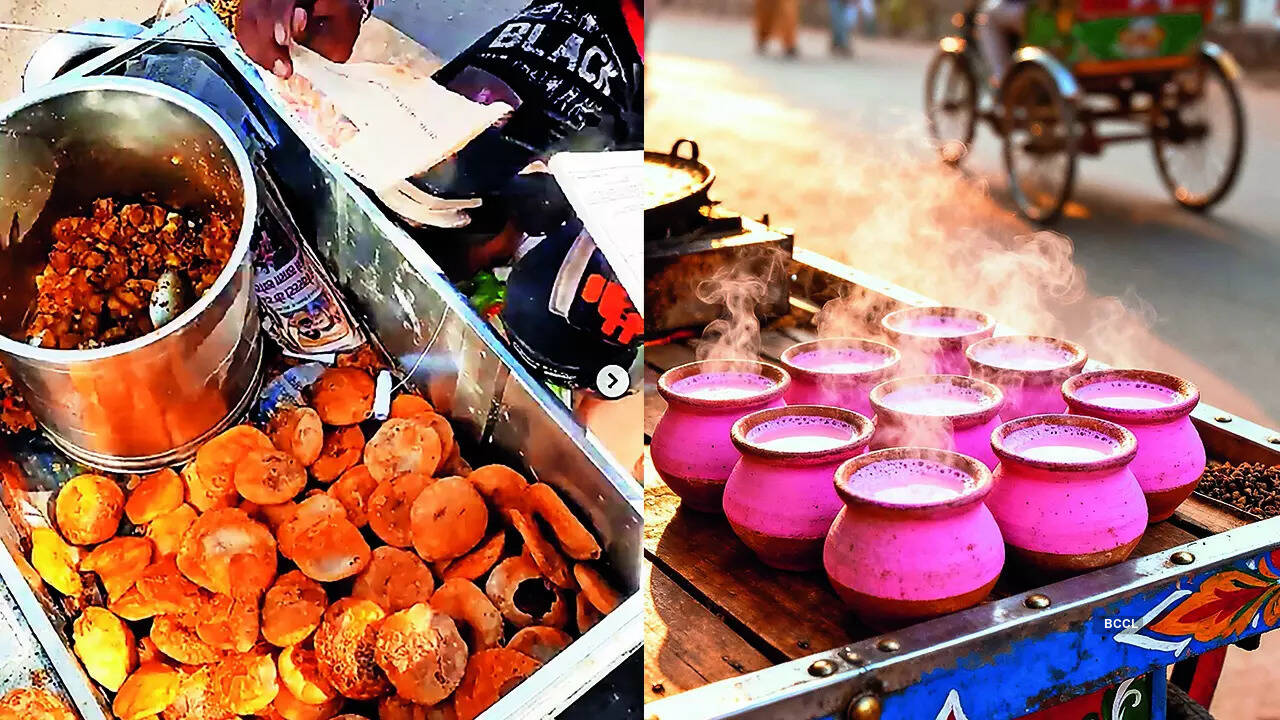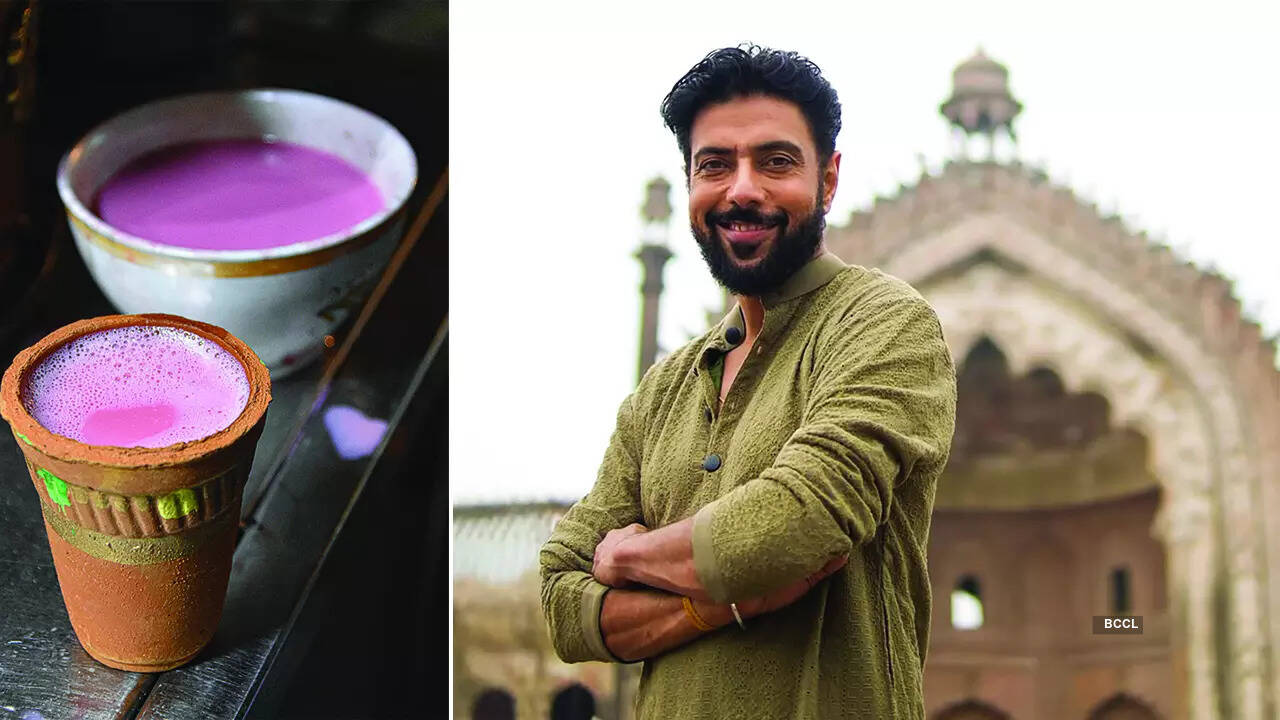ARTICLE AD BOX

Ranveer Brar (BCCL/ @ranveer.brar)
With Lucknow being recognised as one of the Creative Cities of Gastronomy by UNESCO for its Awadhi cuisine and its role in India’s culinary landscape, celebrated chef and Lucknowite Ranveer Brar says that although the tag should be celebrated, it also fosters a need to preserve the rich culture of the city which is beyond Tunde kababs and Malai paan.
The wake-up call from UNESCO recognitionBrar feels an urgent need to cherish lesser-known gems too which add to the culinary richness of the city. The celebrity chef, television personality, author, restaurateur and actor, who posted a video on social media, the day after the city earned the distinction, spoke about how it is important to recognise the smaller hitherto unknown eating places in the city and not just focus on the one’s marketed well.
In an exclusive conversation with us, he reflects, “The recent UNESCO recognition has deepened this dialogue, and it should be a wake-up call for us to uncover lesser-known treasures beyond the famed Tunday’s kebabs or Shukla chaat before they disappear into obscurity.
”Learning from Hyderabad’s culinary focusDrawing a parallel with Hyderabad, a city whose culinary narrative rests heavily on biryani, Brar says, “We should learn from Hyderabad.
It is a prime example of a city being known only for one type of cuisine. Often, people talk about just one thing there — biryani. This focused narrative unfortunately sidelines other amazing foods, which gradually disappear from public consciousness. It’s a marketing treadmill; once on it, it’s hard to get off.
Only a handful of places, like Paradise, dominate the conversation, and that’s what we see happening here too.
Lucknow risks this same fate if we don’t act, and soon,” he says. “It’s a story of focus, but also loss,” he says, adding, “While people celebrate a few iconic dishes, other rich flavours quietly vanish.” He warns of this pattern potentially shadowing Lucknow’s diverse offerings, reminding us that true heritage is broader than marketing buzz.

BCCL
Demystifying the myth of secret spicesWhen asked about the famed ‘secret spices’ that most old Lucknow restaurants boast of, Brar laughs gently.
The mystique, he reveals, lies more in patience and timing than enchanted blends. “We love our stories, but exclusivity can sometimes imprison tradition,” he says. “It is another marketing gimmick which adds a romanticised angle to a dish. Wahi galawat ke kabab gharon mein bhi bante hain. So, where’s that secret ingredient? People will add a pinch of sugar hidden in their pockets to say this is our family secret ingredient and that becomes special for the people.
I would say go out and talk about the ingredients and dish and share it with the world so that it doesn’t remain one person or families’ legacy. Food is meant to be shared and so are the recipes. Pasande is larger than any one maker; Galawati kabab transcends its birthplace.” Brar’s voice carries a plea for openness, for culinary heritage to be a shared joy rather than a guarded treasure. “Many believe in secret spices. For example, Tunday wale talk about 100 spices and secret ingredients they won’t reveal.
But honestly, the ‘secret’ is more about fundamentals—basic techniques, perfect timing, and love. It’s those small details that add charm and romanticize the cuisine. But when it becomes territorial or aggressive about exclusivity, it loses its allure. Celebrate the dishes, not just the makers. When you think of Pasande, Momin’s name comes to mind; for Galawati kebabs, it’s Tunday. But it’s crucial to grow the dish itself.
The bigger the dish becomes, the more everyone benefits. It’s about promoting food culture inclusively, preserving traditions, and welcoming evolution without losing identity,” usges Brar.

(L) Pink Tea (R) Ranveer Brar at Rumi Darwaza
The Art of Slow-Cooked EleganceIn today’s fast-paced world, the slow-cooked dum biryani faces competition from convenience, mention that and Ranveer begs to differ “Pressure cookers have their place,” he admits, “But they can never replace the magic of a slowly simmered masterpiece,” he says.
“There are two ways to look at this. The first way is that you don’t really cook in Lucknow as much as you curate time and patience. For example, the time it takes to perfect a Galawati kebab—it’s not just the making but letting it rest for an hour and a half, sometimes even two hours.
You don’t stand by it fretting or hovering ki kab taiyyar hoga. Similarly, the magic of biryani lies after you’ve assembled everything and then forgotten it for a while.
So, the first thing to understand is that there is a difference between something being time-intensive and labour-intensive. Our Lakhnawi cuisine is the most beautiful, lazy, and elegant cooking possible. You let fire do all the work; you let time do the magic,” he says, adding, “If you make kulcha dough and don’t let it rest for at least an hour, it won’t come out right from the tandoor. That resting time is the essence.
What are you doing with that time? You are nurturing the dough. Many times we overlook this—that our food requires the least intervention, and then time and temperature do the rest. None of our food is like Punjabi bhuna food where you stand and keep frying and stirring until you wear yourself out. We don’t do that. We don’t put the hinged tempering you get in other cuisines. There’s lazy elegance to our food cooked with patience and delicacy,” he says.
“Another way to look at it is to ask—does cooking really warrant so much effort? Mostly, it’s just about managing the time you put it on the flame and when things marinate. Most of the magic happens when you are away from the food—marinating, resting, dum cooking. To answer your question, in today’s fast-paced world, the need for cuisines that slow you down is even greater. These are therapies in a world full of anxiety.
Why eat food that adds to your stress? In a world where everything races and is instant, why not use food as therapy? Why not celebrate its lazy elegance?” he says.Storytelling: The key to taking food beyond taste“We need to use mediums beyond cooking to celebrate cooking. A limitation is always that people won’t know the taste until they try it. But stories travel farther,” says Brar insisisting that taking this conversation forward can’t just be about making people taste it—it has to be storytelling, using digital platforms, using people like him to tell those stories so it reaches a wider audience.
“Even if people can’t taste a dish, at least the dish lives beyond them through someone else’s kitchen and someone else’s attempt and iteration.
That’s the answer to take family recipes and food beyond niche dinners. Stories stick. Storytelling is critical. Use the digital medium to take your recipes and your food forward to a wider reaching audience.”

BCCL
Refinement and nuance define Lucknow FoodAsk him what makes Lucknow food so special and Ranveer doesn’t hesitate to say, “I think it is the refinement it has gained over the years, the detail.
Not the pinnacle, but close to it, in terms of refinement, fineness, and detail. To the point where a misplaced spice in biryani is a personal insult. That’s because it’s an era of relative peace, and relative peace is crucial for any art form to grow—whether music or poetry or food.
What sets our food apart is our delicacy, our nuance,” he says.Hidden culinary treasures of LucknowFinally, ask which places in Lucknow do people not know about but should be brought to the larger public according to Ranveer and he says, “Pehle toh aap doosre galawat ke kabab try kariye and not just any one brand.
We haven’t been able to move ahead of one eatery. Half of the old Lucknow population probably doesn’t even know about Alamgir Bandh Gosht. Places like these must be made famous; it benefits no one to simply build fame around famous places.
Give everyone else also a chance.”

BCCL
The soul of Lucknow lies in its old quartersThe heart of Lucknow, he insists, resides in its older quarters, where heritage is lived and breathed. “The sprawling new localities like Gomti Nagar might be teeming with new restaurants, but the soul is elsewhere.
New eateries serving Moradabadi biryani and other cuisines signify change. But this shift can lead to the loss of authentic experiences in no time,” rues Brar, adding, “Jo purane Lucknow ke Bakse Wale Khaste hain, woh hai asli Lakhnawi cuisine.
Woh Bakse Wale Khaste is not just food but a lived experience,” he insists. “Every sip of a Kashmiri chai, every bite of paper-wrapped samosas, is a ritual that holds the city’s collective memory. These small acts are threads in the fabric of Lucknow’s culture—delicate, enduring,” he adds.

 55 minutes ago
3
55 minutes ago
3









 English (US) ·
English (US) ·